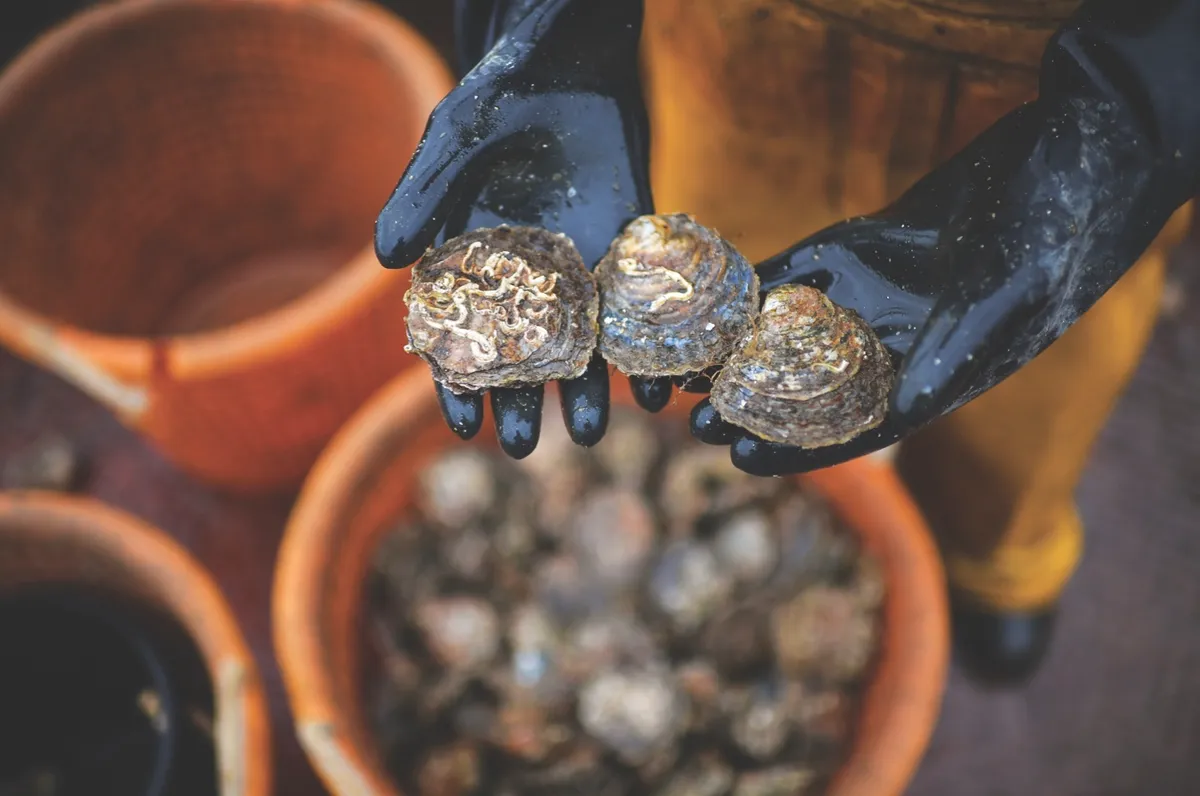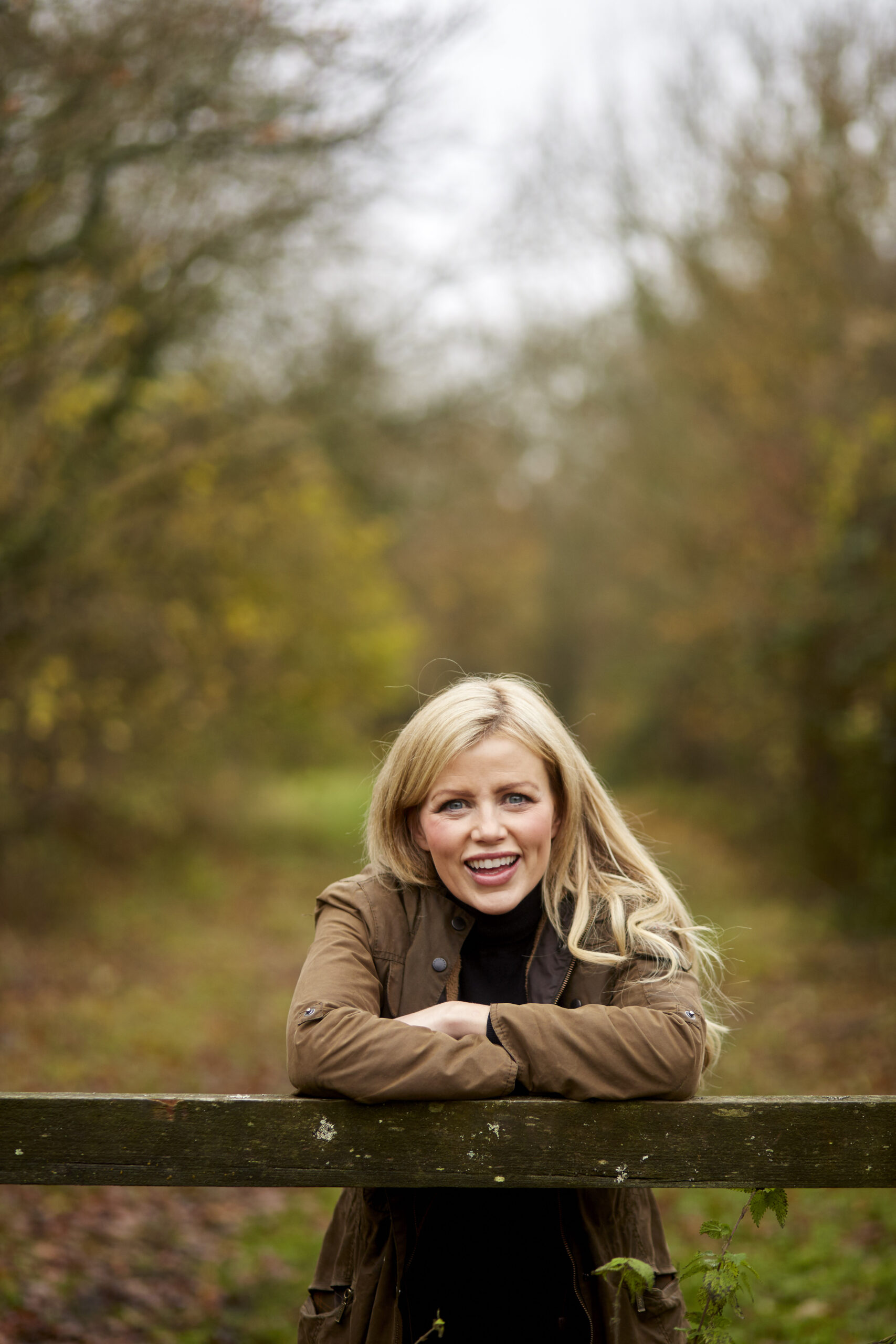“Anything that isn’t in a town and, sometimes, anything that is in a town” is the helpful way I steer people when they have an idea for the programme. When Countryfile moved to prime time in 2009, the remit necessarily became much broader to include all of country life, out beyond the farm gates. Nevertheless, food provenance and the route from field to fork remains a top theme, not least because the subject of food arises so many times a day for us warm-blooded, fast-metabolising mammals.
Aside from the slightly queasy experience of watching other people ingest food on TV, there have been a few memorable culinary filming moments that have stayed with me long after digestion. Memorable, perhaps, because they all seem to involve oysters, which I find repellent.
Accompanied by the glamorous Countess Sondes wearing cinched-in waders and styling out each stumble in wedged wellingtons, we dined on oyster devils-on-horseback in a candlelit cave. In such company, sensitive to table manners, only the hawk-eyed would see me hurry through 50 chews and a stifled retch during the interview. Some years later in Porlock Bay, Somerset, where a collective had developed the oyster beds to support local tradition and employment, I must have had a more mature palate and threw one down my neck straight out of the sea. The texture – always the texture – and horror at the fate of the poor animal saw me breaking into a jig, frenzied in the surf trying to somehow quickly buck off the experience. Our cameraman, on the other hand, delighted in as many as the chef would prepare that afternoon. A decision he came to regret on a treeless, privacy-less Exmoor the following day when I could hear his stomach protesting from 30 metres away. Poor Steve.
John Craven: Can oysters save our seas?
One single oyster can filter up to 200 litres of water a day. But with 85% wiped out globally, is it too late? John Craven reports.
© Getty

And at the end of one of my very first episodes, short on time at the end of the day, I was directed to “wing the goodbye” as a helicopter from RNAS Culdrose kindly dropped me on to the beach where Matt Baker had been preparing oysters with a top chef. Only this time, the propellers had encased each one, and everything else on the beach, in a delicate crumb of crunchy sand.
It’s not just oysters – I’ve come to realise that I am not a foodie. This dawned on me when I looked back on some of my solo eating experiences that week: a lunch of torn bread and a slab of salmon, a supper of cereal or a brunch of popcorn, eaten while still standing in the larder. It is a relief to recognise this about myself as I now understand why people telling me about their meals is analogous to them describing to me the details of their dream from last night. I just don’t care about what I’m eating, so I definitely don’t care about what you’re eating. I’m just not that interested in food. Which doesn’t mean I don’t eat too much of it, I just don’t really mind how the calories go in.
That said, I have enjoyed the great artistry of chefs. And fruit in its right season, mindful of taste, is worthy of pages in your diary. But I now understand that how you feel about the company you’re in and the location is precisely what makes a meal enjoyable. “Bread with friends,” as we call it, is surely preferable to fine dining if it has to be at the grown-ups-small-talk table. I never remember what I was eating, even when I know a friend has spent all day working on it, but the revealing conversations and insights stay with me long after the night has ended. Likewise, the best seats in the house aren’t the ones reserved months in advance with a credit card, but on the sea-cliff, on the lake edge, under the rocks out of the wind beneath the hill crest or under the tree canopy.
Picnics of who-cares-what-food with people who you feel most yourself with and surrounded by nature: that is fine dining.

